第9章 CHAPTER III.(2)
I went the same day to pay my respects to the King, who, receiving me with great coldness, said, "Since your cousin has returned your own horses, you have no more need of mine."There were too many who envied me to suppose these words would escape repetition. The return of the horses seems infinitely to have increased that suspicion Frederic entertained against me, and therefore became one of the principal causes of my misfortunes: it is for this reason that I dwell upon this and suchlike small incidents, they being necessary for my own justification, and, were it possible, for that of the King. My innocence is, indeed, at present universally acknowledged by the court, the army, and the whole nation; who all mention the injustice I suffered with pity, and the fortitude with which it was endured with surprise.
We marched for Silesia, to enter on our second campaign: which, to the Prussians, was as bloody and murderous as it was glorious.
The King's head-quarters were fixed at the convent of Kamentz, where we rested fourteen days, and the army remained in cantonments.
Prince Charles, instead of following us into Bohemia, had the imprudence to occupy the plain of Strigau, and we already concluded his army was beaten. Whoever is well acquainted with tactics, and the Prussian manoeuvres, will easily judge, without the aid of calculation or witchcraft, whether a well or ill-disciplined army, in an open plain, ought to be victorious.
The army hastily left its cantonments, and in twenty-four hours was in order of battle; and on the 14th of June, eighteen thousand bodies lay stretched on the plain of Strigau. The allied armies of Austria and Saxony were totally defeated.
The body guard was on the right; and previous to the attack, the King said to our squadron, "Prove today, my children, that you are my body guard, and give no Saxon quarter."We made three attacks on the cavalry, and two on the infantry.
Nothing could withstand a squadron like this, which for men, horses, courage, and experience, was assuredly the first in the world. Our corps alone took seven standards and five pairs of colours, and in less than an hour the affair was over.
I received a pistol shot in my right hand, my horse was desperately wounded, and I was obliged to change him on the third charge. The day after the battle all the officers were rewarded with the Order of Merit. For my own part, I remained four weeks among the wounded, at Schweidnitz, where there were sixteen thousand men under the torture of the army surgeons, many of whom had not their wounds dressed till the third day.
I was near three months before I recovered the use of my hand: Inevertheless rejoined my corps, continued to perform my duty, and as usual accompanied the King when he went to reconnoitre. For some time past he had placed confidence in me, and his kindness towards me continually increased, which raised my gratitude even to enthusiasm.
I also performed the service of adjutant during this campaign, a circumstantial account of which no person is better enabled to write than myself, I having been present at all that passed. I was the scholar of the greatest master the art of war ever knew, and who believed me worthy to receive his instructions; but the volume I am writing would be insufficient to contain all that personally relates to myself.
I must here mention an adventure that happened at this time, and which will show the art of the great Frederic in forming youth for his service, and devotedly attaching them to his person.
I was exceedingly fond of hunting, in which, notwithstanding it was severely forbidden, I indulged myself. I one day returned, laden with pheasants; but judge my astonishment and fears when I saw the army had decamped, and that it was with difficulty that I could overtake the rear-guard.
In this my distress, I applied to an officer of hussars, who instantly lent me his horse, by the aid of which I rejoined my corps, which always marched as the vanguard. Mounting my own horse, I tremblingly rode to the head of my division, which it was my duty to precede. The King, however, had remarked my absence, or rather had been reminded of it by my superior officer, who, for some time past, had become my enemy.
Just as the army halted to encamp, the King rode towards me, and made a signal for me to approach, and, seeing my fears in my countenance, said, "What, are you just returned from hunting?""Yes, your Majesty. I hope--" Here interrupting me, he added, "Well, well, for this time, I shall take no further notice, remembering Potzdam; but, however, let me find you more attentive to your duty."So ended this affair, for which I deserved to have been broken. Imust remind my readers that the King meant by the words remembering Potzdam, he remembered I had been punished too severely the winter before, and that my present pardon was intended as a compensation.
This was indeed to think and act greatly; this was indeed the true art of forming great men: an art much more effectual than that of ferocious generals, who threaten subalterns with imprisonment and chains on every slight occasion; and, while indulging all the rigours of military law, make no distinction of minds or of men.
Frederic, on the contrary, sometimes pardoned the failings of genius, while mechanic souls he mechanically punished, according to the very letter of the laws of war.
I shall further remark, the King took no more notice of my late fault, except that sometimes, when I had the honour to dine with him, he would ridicule people who were too often at the chase, or who were so choleric that they took occasion to quarrel for the least trifle.